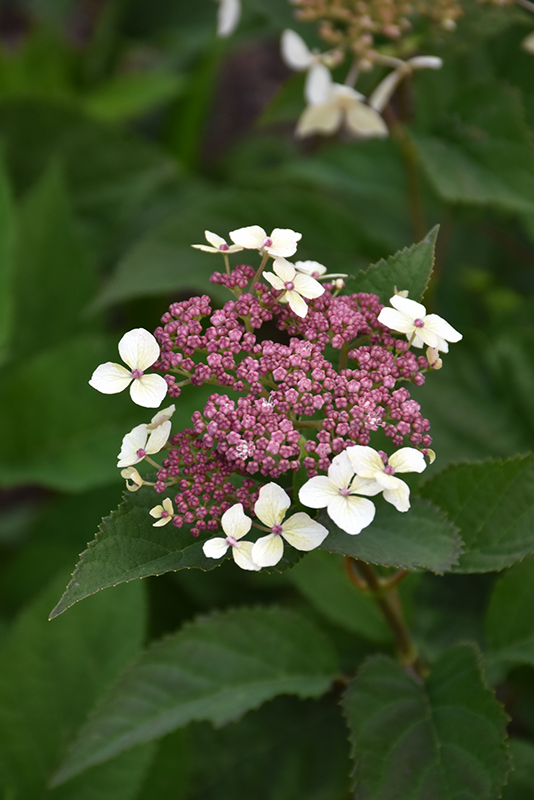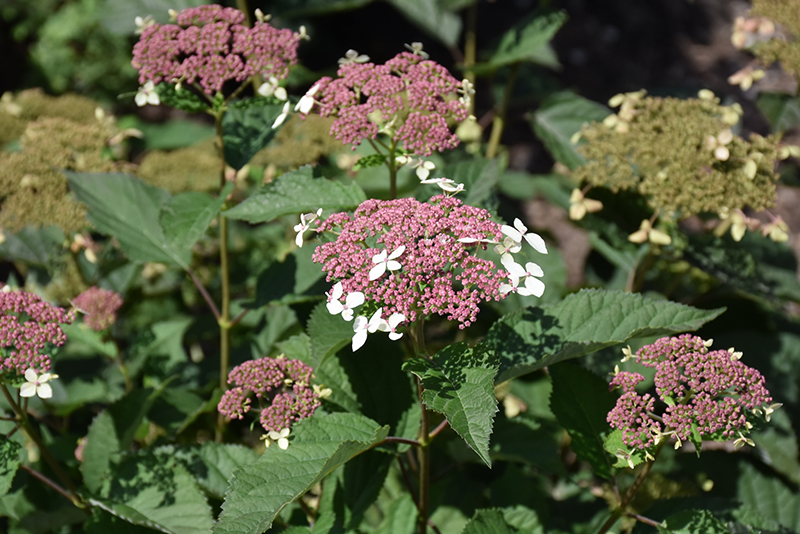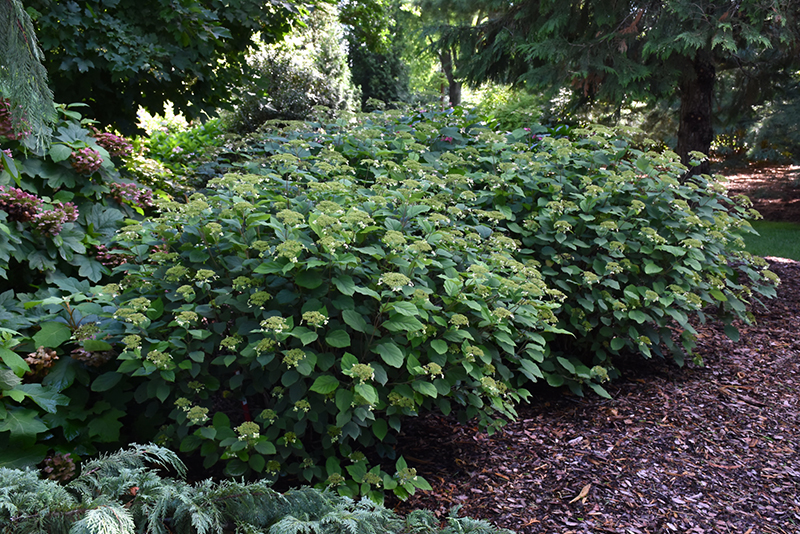Height: 5 feet
Spread: 5 feet
Sunlight:
![]()
![]()
Hardiness Zone: 3
Other Names: Smooth Hydrangea
Group/Class: Invincibelle Series
Brand: Proven Winners
Description:
This elegant selection is the first ever smooth hydrangea with plum purple lacecap flowers and dark, ruby red stems; attractive, heart shaped foliage is nicely ridged and toothed on a graceful habit; best pruned in late winter, it blooms on new growth
Ornamental Features
Invincibelle Lace® Hydrangea features bold plum purple lacecap flowers with white overtones at the ends of the branches from early to late summer. The flowers are excellent for cutting. It has forest green deciduous foliage. The textured heart-shaped leaves do not develop any appreciable fall colour. The smooth bark and ruby-red branches are extremely showy and add significant winter interest.
Landscape Attributes
Invincibelle Lace® Hydrangea is a multi-stemmed deciduous shrub with a more or less rounded form. Its relatively coarse texture can be used to stand it apart from other landscape plants with finer foliage.
This shrub will require occasional maintenance and upkeep, and is best pruned in late winter once the threat of extreme cold has passed. It is a good choice for attracting bees and butterflies to your yard. It has no significant negative characteristics.
Invincibelle Lace® Hydrangea is recommended for the following landscape applications;
- Accent
- Mass Planting
- Border Edging
- General Garden Use
- Naturalizing And Woodland Gardens
- Container Planting
Planting & Growing
Invincibelle Lace® Hydrangea will grow to be about 5 feet tall at maturity, with a spread of 5 feet. It tends to be a little leggy, with a typical clearance of 1 foot from the ground, and is suitable for planting under power lines. It grows at a fast rate, and under ideal conditions can be expected to live for approximately 20 years.
This shrub does best in full sun to partial shade. You may want to keep it away from hot, dry locations that receive direct afternoon sun or which get reflected sunlight, such as against the south side of a white wall. It does best in average to evenly moist conditions, but will not tolerate standing water. To help this plant achive its best flowering performance, periodically apply a flower-boosting fertilizer from early spring through into the active growing season. It is not particular as to soil type or pH. It is highly tolerant of urban pollution and will even thrive in inner city environments. Consider applying a thick mulch around the root zone in winter to protect it in exposed locations or colder microclimates. This is a selection of a native North American species.
Invincibelle Lace® Hydrangea makes a fine choice for the outdoor landscape, but it is also well-suited for use in outdoor pots and containers. Because of its height, it is often used as a 'thriller' in the 'spiller-thriller-filler' container combination; plant it near the center of the pot, surrounded by smaller plants and those that spill over the edges. It is even sizeable enough that it can be grown alone in a suitable container. Note that when grown in a container, it may not perform exactly as indicated on the tag - this is to be expected. Also note that when growing plants in outdoor containers and baskets, they may require more frequent waterings than they would in the yard or garden. Be aware that in our climate, most plants cannot be expected to survive the winter if left in containers outdoors, and this plant is no exception. Contact our experts for more information on how to protect it over the winter months.



